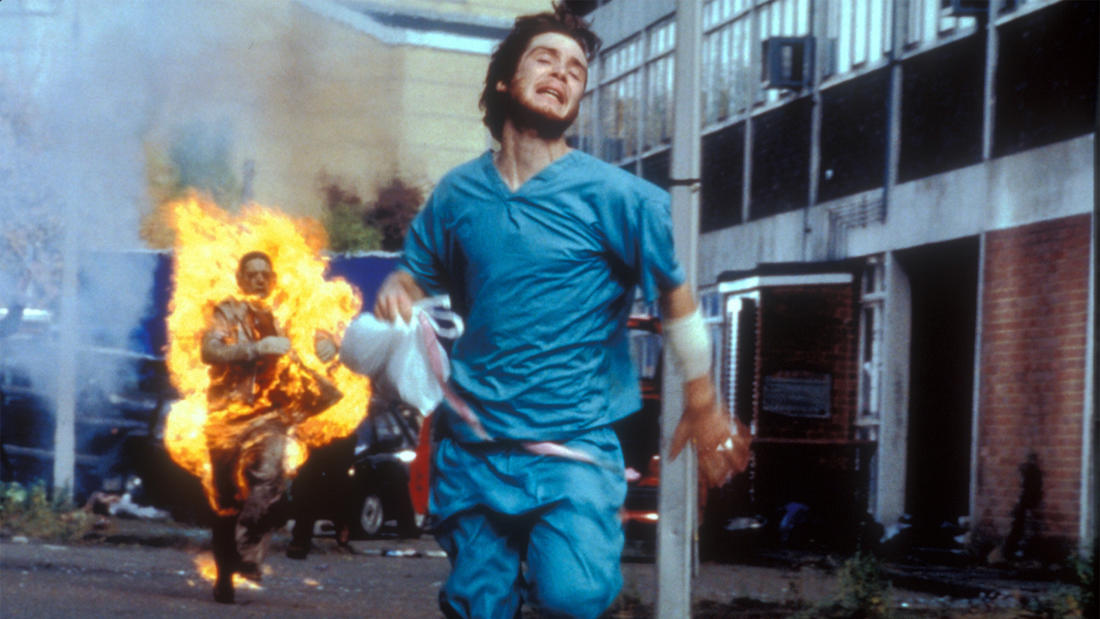
Amherst Cinema Amherst, MA
Dr. Robert L. Dorit
Evolutionary biologist; Professor of Biological Sciences, Smith College
28 Days Later— Why are we still alive?
Program Description
Bacteria, viruses, and parasites have evolved myriad ways to exploit the human species, and yet we are still here. Using recent examples, we explored the threats we face from infectious diseases, and talked about current and future strategies to ensure our continued survival.
Presented At
Amherst Cinema Amherst, MA
Film Synopsis
Animal rights activists free a group of infected chimpanzees to horrifying results in this speculative sci-fi horror effort from director Danny Boyle.
Animal activists break into a laboratory with the intention of releasing chimpanzees that are undergoing experimentation, infected by a virus that causes rage. The naive activists ignore the warnings of a scientist to keep the cages locked, with disastrous results. 28 days later, bicycle courier Jim (Cillian Murphy) wakes up from a coma in a deserted hospital in London. Desperate to find anyone else, he stumbles into a church that has been taken over by murderous zombie-like humans. Fellow survivors Selena (Naomie Harris) and Mark (Noah Huntley) rescue Jim and explain to him that this blood-borne virus overwhelms the infected victim with a murderous rage within seconds. Britain has been overrun. Their only chance of survival may lie in the hands of a group of Manchester soldiers who claim to have the "answer" to infection and invite any survivors to join them at their blockade. Faced with no alternative, the group sets out northward, unaware that the worst is yet to come.
About the Speaker
Dr. Robert L. Dorit is an evolutionary biologist and a professor of biological sciences at Smith College, where he works on the evolution and impact of antibiotic resistance, and on the design of novel antibiotics that target specific pathogens, but leave the rest of the microbiome on which we depend intact.